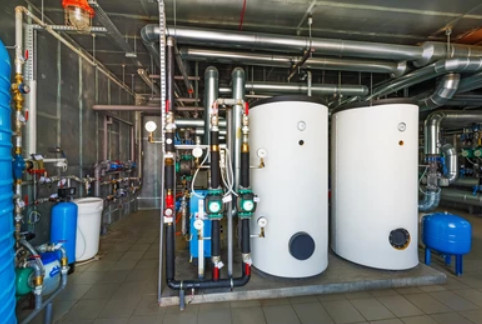HOT WATER SYSTEM MUST KNOWS!
A working water heater is one of the finer things in life. It makes life easier. But unfortunately, your unit may produce rusty water, leak, or fail to function correctly over time.
Also, according to the Department of Energy, all water heaters must meet new energy efficiency standards from now on. Most manufacturers have complied with the new regulations by increasing the size of water heaters, adding more insulation, and changing the type of insulation. So, how does this affect you? To begin with, once the current supply of water heaters (made to meet old standards) is exhausted, the cost of a new water heater will increase. Second, some makes and models have been phased out due to the changes.
So if you are looking for a new heating system, there are a couple of things to consider. A lot of people have very minimal knowledge about hot water systems, and it is okay. Most of these systems have their own set of features. You must determine which system is the best fit for you and how you will use the hot water system to your advantage. We have made a list of everything you need to know about water heaters, whether you’re shopping now or in the future.

1. Figure our what you want
Depending on your budget and preferences, there are various types of water heaters. They are as follows:
Tankless Water Heaters: It needs less space and is less expensive to operate in the long run. You not only get a long-lasting heater, but you also save money on energy. However, the initial installation costs are higher.
Solar Heaters: Solar heaters are ideal for families looking to save money on energy costs, but they can be more expensive upfront and require more installation.
Traditional Tank Heaters: These are ideal for a large family because they have a large reservoir to store hot water. These heaters are usually cheaper to buy. However, they may end up costing you more in the long run in terms of energy bills.
2. Pick The Correct Size
t would help if you always chose a water heater that meets your family’s hot water requirements. Manufacturers of water heaters list the various sizes available for you to compare and choose the right one. If you’re unsure, talk to a professional who can help you figure out what would be best for your home and family. The unit’s size is critical in terms of comfort, efficiency, and longevity.
3. Cost Of Installation
Before buying a new water heater, you should determine how much installation will cost. These costs may vary, mainly if you previously had a specific type of heater and now need to switch to a different one. Remember to factor in the cost of removing or upgrading any old pipes and preparing the area for new installation. The size of the water heater will also determine the price. Find out how much plumbers charge and choose one that fits your budget. For your heater installation, make sure to hire a qualified plumber with a current license. For the most part, the type of water heater that is being installed is a major element in determining installation costs. While tank-style water heaters are less expensive to install, tankless water heaters are more expensive. Size and insulation will boost the cost of new high-efficiency water heaters.
4. Pressure Problem
If you have a problem with water pressure in your home, you must first address that issue. Because of the high water pressure in your home, your faucets and showers will spray water very hard. As the overflow fills the tank up, water may spill into the area where the tank sits, causing severe damage. If the tank bursts, water will spill into the space and cause extensive water damage.
5. explore your water heating services
When you’re looking for a heating system, keep in mind that tanks come in various sizes. You can buy a tank that is the perfect size for your home, or you can get one that is a little bigger if you have several people living in the house who take daily hot showers. There are also tankless systems that heat water as it passes through a heating element or systems with an integrated overflow tank. Allow the plumber to demonstrate your best options so you can learn what works best in a home similar to yours.
There are many fuel options available for a new water heater. The first step is to figure out what kind of energy you’ll use to heat your home. Electricity, fuel oil, natural gas, solar, or propane, you can get all of them. Next, consider which option is the most cost-effective if you have more than one.
6. efficiency
Water heating accounts for about 15% of your total energy bill. The Department of Energy estimates that an average family will spend $400 to $600 per year on hot water and use 64 gallons per day. Therefore, a high-efficiency hot water heater is beneficial because it reduces the amount of energy used, lowering your energy costs. An Energy Efficiency Rating, also known as an Energy Factor, is assigned to each water heater. Under standard conditions, a hot water heater’s Energy Factor is used to calculate its efficiency. A simulated use test is undertaken by the Department of Energy for each water heater model to determine the Energy Factor. If expressed as a decimal, water heaters with a higher Energy Factor use less energy than those with a lower Energy Factor rating.
7. installation time
In the case of a DIY installation, it may take several hours or several days, depending on how familiar you are with the operation of water heaters. It is a regular job for professionals to install these types of systems, making them a precise science and reducing installations to a bare minimum. It takes a professional plumber about three hours to install a tank hot water heater, regardless of its size. Tankless systems take longer to install than tank systems. The best way to get your hot water running again is to hire a professional.


